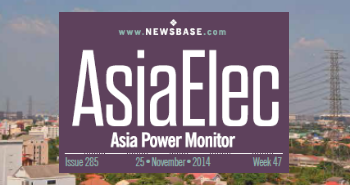ASIAELEC: Japan offers $10bn to support Asia's energy transition

The Japanese government is to offer $10bn in financial aid to boost decarbonisation across emerging economies in South and Southeast Asia.
Japanese Minister of Economy, Trade and Industry (METI) Hiroshi Kajiyama told regional energy ministers it would offer support for renewables, energy saving and retrofitting coal power stations to gas, as well as helping to create national roadmaps towards carbon neutrality.
"We propose the Asian Energy Transition Initiative as a package of Japanese support for realistic transitions in Asia towards carbon neutrality," Kajiyama told a meeting of 10 ASEAN energy ministers, Reuters reported.
"For us in Asia, we should not miss this trend on board and see this an opportunity to seek both transition to cleaner society system and sustainable growth," said Kajiyama.
The Asia Energy Transition Initiative (AETI) was welcomed by ASEAN energy ministers as being key to fostering the energy transition.
The members of the ASEAN union are Brunei, Cambodia, Indonesia, Laos, Malaysia, Myanmar, the Philippines, Singapore, Thailand and Vietnam.
The AETI states that Japan will help ASEAN members formulate individual roadmaps for energy transition toward carbon neutrality.
The Economic Research Institute for ASEAN and East Asia (ERIA) is to develop regional and individual carbon neutrality outlooks for 2050, 2060 and 2070.
"In particular in Asia, where energy demand will grow hereafter, it is essential to seek diverse and realistic energy transition, by utilising possible energy sources and technology, while taking into account each country's peculiarity of difference in geographic characteristics and development phase," Kajiyama said.
In terms of finance, Japan also proposed the Asia Energy Transition Finance scheme. Japan would provide green finance if countries declared their desire to pursue carbon neutrality and drew up roadmaps toward this goal,
Crucially, and controversially, Japan’s $10bn financial support would cover both renewables and LNG.
The METI said that the funding would back the construction of gas-fired power plants and associated LNG import terminals in a bid to replace coal as a generating fuel.
The use of gas as a transition fuel to replace coal is itself controversial, and support for gas is regarded by many green investors and campaigners as still releasing carbon dioxide into the atmosphere.
However, multilateral development banks (MDBs), such as the Asian Development Bank (ADB) and the International Finance Corp. (IFC), have recently ended their support for gas-based projects, as these still produce emissions. Private investors have also retreated from gas.



Follow us online